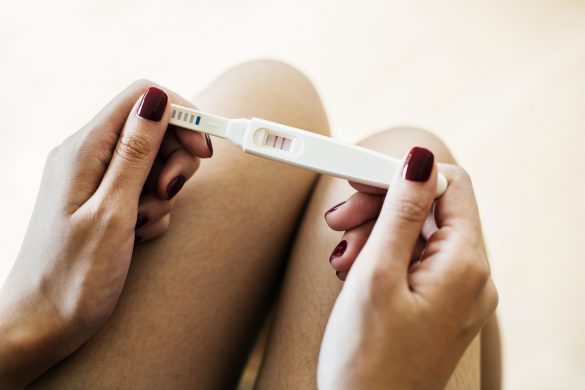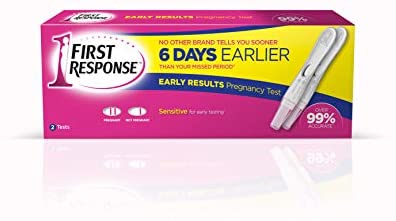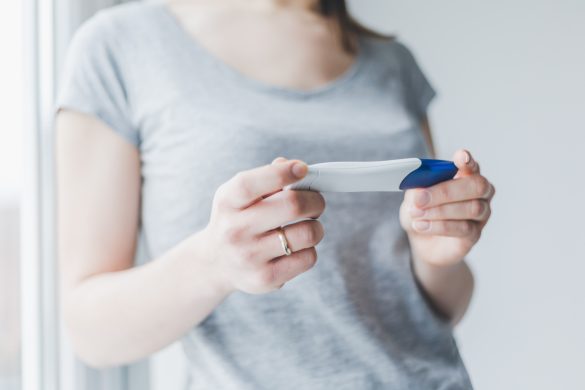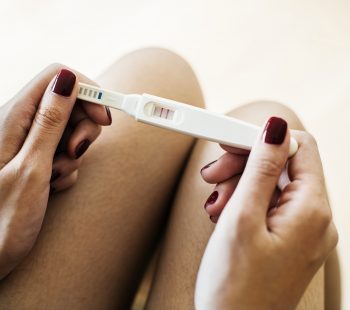They are used up to 10,000 times a day in the UK, but how do pregnancy tests work?
If you want to know how a pregnancy test works, you firstly need to understand that they test for, and in this case it’s for a hormone called human chorionic gonadotropin (HCG). Home urine tests check for the presence of this hormone in the urine, it is produced by cells that eventually form the placenta.
The hormone first enters a woman’s bloodstream when the fertilised egg implants into the lining of her uterus, in as little as six days after the egg has been fertilised. After that, the levels of HCG increase very rapidly – doubling every 48 hours for a while. Once the levels are detectable in a woman’s urine, her pregnancy test should show positive.
Eggs take about one week to travel from the ovary to the uterus after ovulation. The egg can be fertilised any time during its travels or once it reaches the uterus. HCG only begins production after the fertilised egg implants. It can be hard to predict exactly when fertilisation occurred because sperm cells can live for up to five days inside the woman’s body. For this reason, most home pregnancy tests advise women to wait until they are at least two or three days late for their periods – or approximately 15 to 16 days after ovulation – before they take a pregnancy test.
When should I take a pregnancy test, and how often should I take one?
Even though home pregnancy test kits claim they can tell women if they are pregnant even before they miss their periods, most women should wait a few days to a week to take a urine pregnancy test. Many women may ovulate later in their cycle than they think, or the fertilised egg may not implant in their uterus for several days and then, it takes several days for the HCG hormone to reach high enough levels for strong positive pregnancy test results.
The earlier you take a home pregnancy test, the less HCG there is in your system. The best time to take a urine test is when the urine – and the HCG level – is most concentrated. For this reason, most tests recommend women test when they first wake up in the morning.
You should take a pregnancy test as soon as practical after a missed period or if you think you might be pregnant, following the guidelines above. The earlier you know you are pregnant, the sooner you can think about your options and get the care you need from your doctor.
How do pregnancy tests work in terms of accuracy?
It is important to read the labels on the pregnancy tests to find out how to use it best. Home pregnancy test kits claim they are between 97 and 99 percent accurate when they are used correctly. Women usually prefer to use pregnancy tests first because they can be done privately at home, and you can get the results in a matter of minutes.
Even the best tests vary in accuracy from woman to woman because every woman ovulates at a different point in her cycle. Also, fertilised eggs can implant in the uterus at different times. Until the egg implants, the body does not start producing HCG for the pregnancy test to detect.
Several things can affect the accuracy of a home pregnancy test. If the woman takes the test too soon after she thinks she may have conceived, or if she did not follow the test instructions correctly, the test may not give accurate results. Some women never produce high enough levels of HCG during their pregnancy for home tests to measure it. To get the most accurate pregnancy test results, follow the test instructions exactly and take the test with your first urination of the day.
If you are sure you have waited long enough to take the test and have followed the instructions, and you get a negative test result, the odds are high you are not pregnant.
You wanted to know “how do pregnancy tests work” and hopefully we have answered your question, however if you are concerned or worried about being pregnant you should consult your doctor.
Pregnancy tests can be ordered online here.









